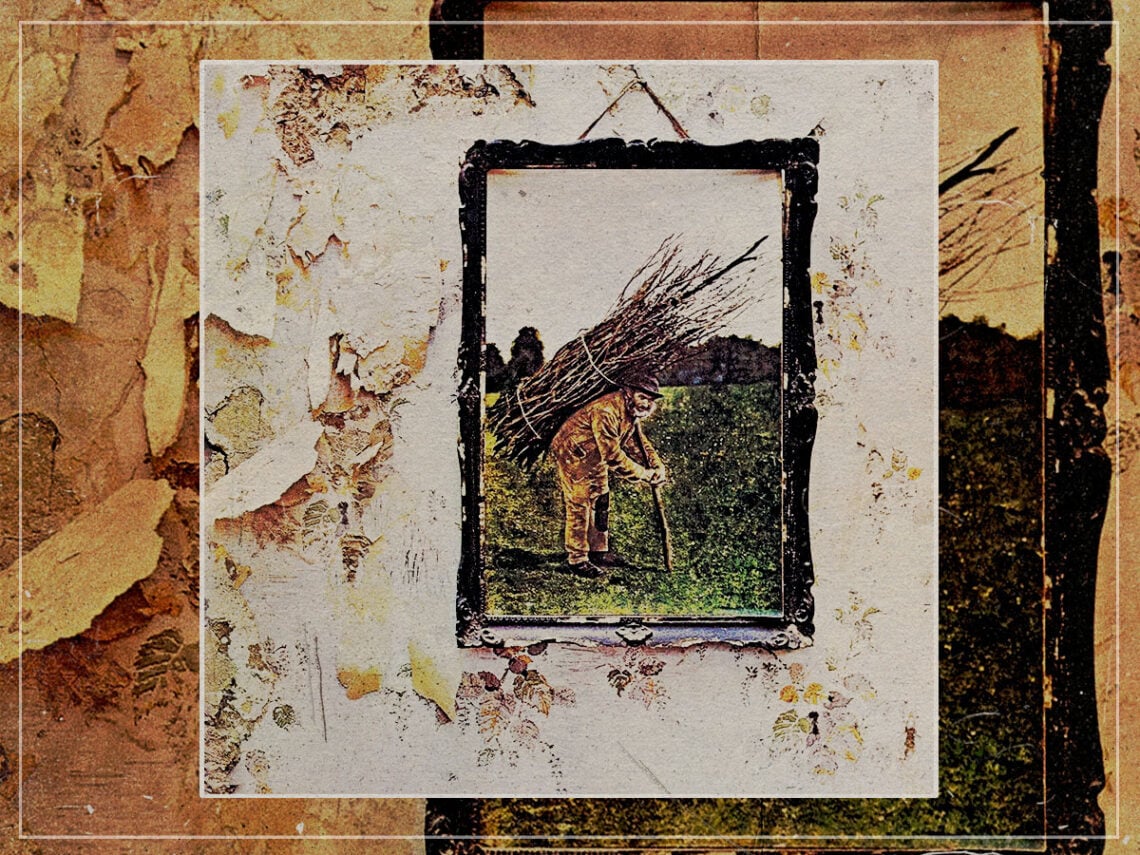The cover of Led Zeppelin‘s lauded fourth album, Led Zeppelin IV, is instantly recognisable. Not only because it was the record that produced enduring classics like ‘Stairway to Heaven’, but because it became one of the best-selling albums of all time. In 2010, the hit album was even selected as one of ten album covers to be commemorated on a Royal Mail stamp, further cementing it into the collective visual memory. The elderly man on the cover was the mysterious icon of one of their most formidable albums, stooped over as he carried sticks. The source of the image had long been a mystery up until recently.
Jimmy Page and Robert Plant reportedly found the grainy black-and-white photo in an antique shop in Reading, the man’s physical toil echoing the heaviness of their sound. In a testament to the wonders of the modern world, one researcher has now identified the man in the photo as well as the photographer. It just so happened that Brian Edwards, a visiting fellow at the University of the West of England, not only had a keen research mind but was also a massive Zeppelin fan.
In 2021, he was combing through material for the Ways of Seeing Wiltshire exhibition when he found an album from 1892 titled ‘Reminiscences of a Visit to Shaftesbury’. The pictures were quaint visions of a bygone time in hazy monochrome, including portraits of rural labourers, street scenes and shots of the architecture of Dorset, Somerset and Wiltshire. One picture stood out among them all: A Wiltshire Thatcher, also known as the stick man.
And that is a technical term, too, as Edward pointed out to the BBC. “He’s often called the stick man,” he explained, saying that instantly recognising him from the Zeppelin cover was “quite a revelation”. The thatcher was thought to be called Lot Long, who died in 1893. The next step involved looking into the handwritten note found inside the album, which said: “A present to Auntie from Ernest,” in looped cursive.
The Ernest in question was photographer Ernest Farmer, who had a quiet hand in the development of photography in England. He was the first-ever head of the School of Photography at the Polytechnic Regent Street.
The Wiltshire Museum then planned an exhibition on Farmer’s contributions, and the museum’s director said: “It is fascinating to see how Led Zeppelin developed this theme of rural and urban contrasts and became the focus for this iconic album cover 70 years later.”
In a later statement, Edwards reflected on the magnitude of his chance find. “Led Zeppelin created the soundtrack that has accompanied me since my teenage years, so I really hope the discovery of this Victorian photograph pleases and entertains Robert, Jimmy, and John Paul.”

